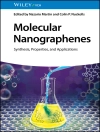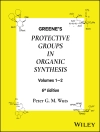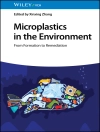Global warming and, even more recently, the COVID pandemic have brought into public focus our dependence on science and the lens with which it considers the world. Science is providing opportunities for new ways of thinking and has always opened new avenues for creative thought and advances.
This book examines and summarises the developments and changes in approaches to organic and natural product chemistry as seen through the published works of the author and seeks to place them in a philosophical and societal context. Demonstrating and explaining how scientists and, more particularly, chemists arrive at a world view, it will show how this is predicated not just by scientific advances but also by societal influences. The author uses personal experience to detail progress through science. Techniques used in such investigations are alluded to but not described in detail since the interested reader can access the full published papers if required.
Interesting both to the general, scientifically literate reader and to the specialist wanting information on natural product chemistry, the book does not create a rulebook for carrying out natural product chemistry but rather examines the processes that lie beneath the development of natural product chemistry and how this enables chemists to examine and interpret the world. Students of chemistry (whatever their age or stage of career) may also be interested in reading how peer reviewed and published material relates to the wider society view.
表中的内容
Natural Product Chemistry: To See the World in a Single Leaf;Isolation and Synthesis of Natural Products: Empiricism and Reductionism;Fractionation and Biological Assays on Whole Organisms;The Reversibility of Reactions;Natural Products in Plant Cell Walls: Model Systems to Investigate Complex Natural Products;Bioactivation of Natural Products and Biological Assay of Carcinogens;Allergy and Chronic Toxicity Model Systems;The Definition of Natural Products: Acrylamide as an Example;Natural Products in the Oral Cavity and Biological Dark Matter;Differential Biological Effects of a Single Natural Product Depending on Site of Action;Conclusion: The Future of Natural Products
关于作者
Bryan Hanley is a visiting researcher at the Academisch Centrum Tandheelkunde Amsterdam (ACTA). ACTA is the joint Dental Faculty of the University of Amsterdam and the VU Amsterdam. He is a graduate of the University of St Andrews (BSc Chemistry) and the University of Edinburgh (Ph D Biological Chemistry). Bryan has held a number of posts in Research Institutes and in industry, including positions at Board and Director level, and has worked in the UK, Ireland, Belgium and the USA. He is a past-President of the Industry and Technology Division Council of the Royal Society of Chemistry and is a Fellow of the Royal Society of Biology. He has authored over 70 papers and edited two books. He is a Board member of the International Life Sciences Institute, Europe.












